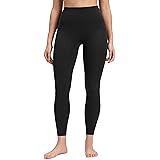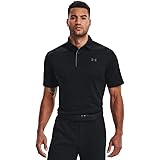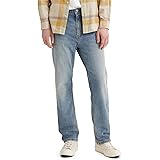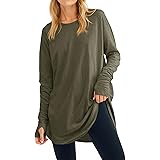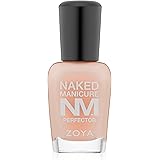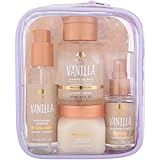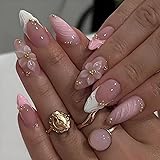The global textile industry faces immense pressure. Calls for transparency and ethical practices grow louder. Consumers increasingly seek out brands committed to environmental stewardship and social responsibility. The video above highlights several pioneering sustainable fashion brands. These companies are transforming the sector. They introduce innovative materials and circular business models. Their efforts showcase a significant shift. This movement goes beyond mere trends. It represents a fundamental change in how clothes are made. These brands are setting new industry standards.
The evolution of ethical fashion has been remarkable. What once seemed a niche market is now a vital component. It addresses critical issues like waste reduction and fair labor. Brands are investing heavily in research and development. They are finding better ways to produce clothing. This commitment extends from material sourcing to end-of-life solutions. The spotlight on these companies provides valuable insights. They demonstrate practical applications of sustainable principles. Their work inspires broader industry adoption. It proves that style and sustainability can coexist.
Pioneering the Circular Economy in Fashion
The linear “take-make-dispose” model is outdated. Sustainable fashion brands are embracing circularity. This approach minimizes waste and maximizes resource use. It reimagines a product’s entire lifecycle. From design to recycling, every stage is considered. This shift is crucial for long-term environmental health. It offers a viable path forward for the industry. Circular models create new value chains. They foster innovation across the supply chain. This commitment to circularity is a hallmark of truly responsible brands.
Redefining Denim: The Mud Jeans Model
Mud Jeans exemplifies a robust circular economy. They initially used organic cotton and fair factories. However, they pushed for greater impact. Their innovative “lease-a-jean” system allows customers to rent jeans. After a year, jeans can be returned or exchanged. This model ensures materials remain in use. It significantly reduces waste. This system tackles textile waste proactively.
Material innovation is central to their strategy. Mud Jeans produces sweaters with 84% recycled cotton. Each sweater incorporates material from three old pairs of jeans. Their new denim integrates 40% post-consumer recycled waste. This advanced yarn is used in both warp and weft. Earlier capabilities limited recycled content to 23% in the warp only. Furthermore, their washing processes are entirely waterless. This conserves precious resources. Mud Jeans also focuses on trans-seasonal collections. They add new styles judiciously. This prevents market oversupply. Their durable products encourage longer use. Customers keep jeans for extended periods. This naturally aligns with their circular goals.
Innovating with Sustainable Materials and Production
Material science is a cornerstone of sustainable fashion. Brands are exploring alternatives to conventional fabrics. They seek materials with lower environmental footprints. This includes renewable resources and recycled content. Production methods are also under scrutiny. Companies prioritize energy efficiency and reduced chemical use. These innovations drive significant progress. They offer tangible solutions for a greener future. The shift towards novel materials is accelerating rapidly.
Lovjoi: Vegan Fashion with Social Impact
Lovjoi emerged from a desire for clean, vegan styles. Founded by Marina, the brand addresses a market gap. They are based in Southern Germany, a conservative region. Initial community confusion quickly turned to interest. This highlights the growing acceptance of ethical fashion. Their commitment extends beyond materials to social responsibility.
Organic cotton forms their primary material base. Lovjoi recognizes cotton’s water intensity. They actively seek innovative, lower-impact materials. Their production is entirely in-house. This allows for rigorous quality control. They foster an intercultural cooperation. Syrian refugees contribute their valuable sewing expertise. This initiative creates social good. It integrates new skills into the local economy. Lovjoi champions organic, fair trade, made-in-Germany, social cooperation, and vegan principles. Each product tells a compelling story of responsible practices.
HoodLamb: Hemp-Based Outerwear
HoodLamb, from Amsterdam, specializes in winter jackets. They prioritize sustainable materials and vegan alternatives. Hemp is their main material. It is celebrated for being resource-friendly. Hemp requires minimal water. It grows without herbicides or pesticides. This makes it an excellent eco-textile choice. HoodLamb’s dedication to animal welfare is also prominent.
A key innovation is their proprietary vegan faux fur. This material blends hemp with recycled PET bottles. This upcycling process transforms waste into a luxurious component. It achieves a beautiful aesthetic without animal harm. The inclusion of hemp ensures breathability and comfort. This combination of recycled and natural fibers is ingenious. It demonstrates how diverse materials can create high-performance apparel. Their approach sets a high standard for cruelty-free outerwear. It minimizes environmental impact.
NAE: Footwear from Unexpected Sources
NAE, founded in 2008, constantly investigates new materials. Based in Portugal, they faced initial challenges. Local factories were accustomed to leather. Adapting to alternative materials required new processes. NAE began with ecological microfibers. They then expanded to cork and recycled plastic. Their journey reflects persistent innovation. They continuously push boundaries in sustainable footwear.
A significant discovery for NAE was Pinatex. This material comes from pineapple leaf waste. Local communities in the Philippines collect these leaves. They are then transformed into fibers. The Pinatex fabric is produced in Spain. It is certified for footwear use. Cork, sourced from sustainable Portuguese forests, is another staple. Recently, NAE experimented with upcycled airbags. They also use recycled car tire soles. These unique materials are gaining popularity. NAE remains dedicated to finding natural and sustainable alternatives. Their pioneering work influences the broader industry.
Extending Product Lifecycles and Empowering Artisans
True sustainability considers a product’s longevity. It also values the hands that create it. Sustainable fashion brands often incorporate design for durability. They offer repair services or modular components. This keeps products in use longer. Empowering artisans through fair wages is also critical. It preserves traditional crafts. These practices strengthen local economies. They foster a deeper connection between consumer and product. This holistic view enhances brand value.
Ethnotek: Bags Preserving Cultural Heritage
Ethnotek, founded four years ago, fuses culture and function. Jake Orak’s vision was to incorporate traditional fabrics into bags. The brand’s mission is “keeping culture alive.” They support weaving cultures globally. In India, they began with one family. Now, 19 families weave for Ethnotek. Each product is tagged with the artisan’s name and region. This transparency honors traditional craftsmanship. It ensures fair compensation and recognition.
Their bags feature a unique modular design. When artisan fabrics wear out, customers can change the flap. Ethnotek offers over 20 flap colors. This extends the product’s lifespan. It allows for personal customization. The base materials include recycled PET from plastic bottles. They also use conventional, durable nylon for lifetime guarantees. This dual approach balances sustainability and robustness. Ethnotek provides repair services. This commitment prevents products from being discarded. It reinforces a long-life cycle philosophy.
Verena Bellutti: Upcycled Tarpaulin Accessories
Verena Bellutti’s brand creates bags and accessories. They utilize tarpaulin surplus materials. These are off-cuts from truck tarpaulins. They are too small for industrial use. However, they are perfectly sized for bags. This upcycling diverts quality material from landfills. It showcases resourcefulness and creativity. The tarpaulin is new. It retains its inherent durability. This approach creates truly unique items.
The material is tough and water-resistant. It comes pre-colored. This eliminates additional dyeing processes. The accessories are handmade. All production occurs in Europe. Verena Bellutti works closely with her factory. They develop new designs together. This ensures ethical production and high quality. The brand embodies practical sustainability. It transforms industrial waste into stylish, long-lasting products. This demonstrates a strong commitment to local manufacturing.
Advanced Textile Solutions for Performance and Planet
The demand for high-performance sustainable textiles is growing. Consumers expect both function and environmental responsibility. Brands are meeting this challenge head-on. They develop materials that perform in demanding conditions. These innovations span everything from activewear to outdoor gear. The focus is on technical properties. Simultaneously, brands prioritize ecological integrity. This fusion delivers superior products. It pushes the boundaries of textile engineering. Such advancements are crucial for a fully sustainable industry.
Bleed Clothing: Performance Apparel Without Compromise
Michael, founder of Bleed Clothing, fuses sustainability with function. The brand seeks vegan alternatives for sportswear. They prioritize animal respect. Their “Cotton Shell” project is a notable innovation. This jacket is 100% organic cotton. It achieves waterproof and breathable qualities. It does this without conventional polyurethane membranes. Such membranes are problematic for the environment. This represents a significant advancement. It offers a natural fiber solution for technical apparel.
Bleed Clothing also champions recycled fabrics. Their surf shorts feature Aquafil Econyl. This material is made from recycled fishing nets. These nets are collected from beaches worldwide. Their Primoloft jacket uses 100% recycled polyester. This applies to both interior and exterior components. Michael emphasizes single-material compositions. Mixing fibers like polyamide and polyester complicates recycling. Customers should examine material descriptions. Aim for 95-100% single-fiber products. This aids future recycling efforts. Bleed Clothing is a testament to sustainable performance. It ensures nature, Michael’s “playground,” is protected. His personal experience in conventional sportswear drove his ethical shift. He demonstrates that sustainable fashion brands can excel in technical categories.
Beaumont Organic: Timeless Style, Sustainable Fabrics
Beaumont Organic, founded in 2008 in the UK, has grown significantly. It started with just eight organic cotton t-shirts. Today, they offer a diverse collection. Organic cotton remains a primary material. They also incorporate linens and Tencel. These eco-fibers are chosen for their lower impact. The brand caters to a conscious consumer. This customer base is typically 35 and older. They thoughtfully consider their purchases. This extends to food, home goods, and apparel. Their customer values quality and ethical sourcing. Beaumont Organic offers timeless, well-made pieces. They promote a philosophy of considered consumption. This counters the rapid cycles of fast fashion. Their designs prioritize longevity and classic appeal. It is a cornerstone for many sustainable fashion brands today.


